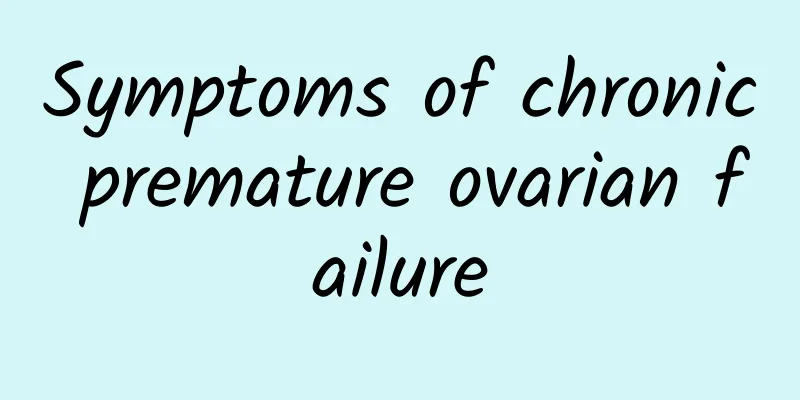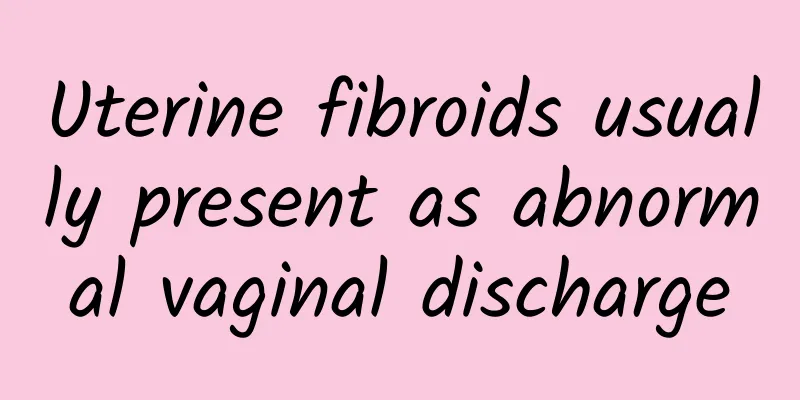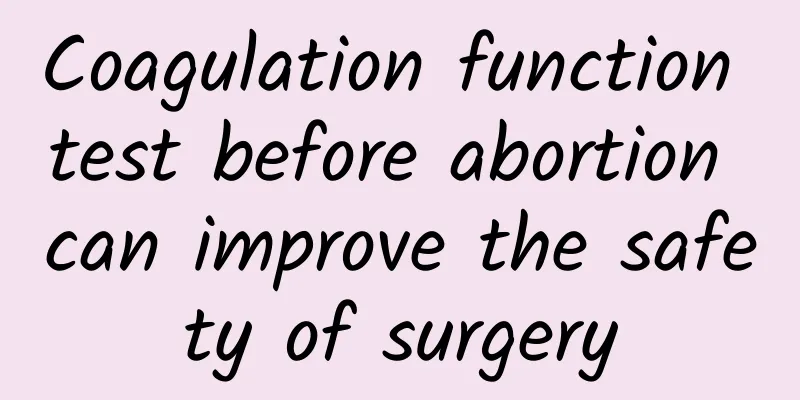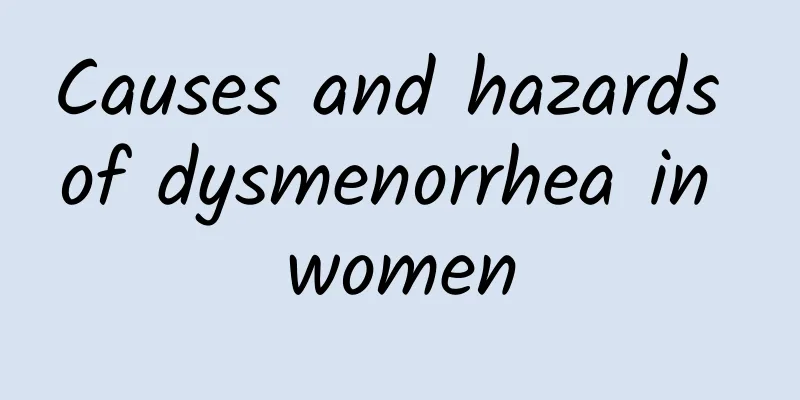Symptoms of chronic premature ovarian failure

|
Symptoms of chronic premature ovarian failure include menstrual disorders, infertility, hot flashes, night sweats, and mood swings. Once related symptoms are found, you should go to the hospital as soon as possible and receive targeted treatment through a clear diagnosis. 1. Menstrual disorders: The most common symptom of chronic premature ovarian failure is abnormal menstrual cycle, which is manifested as shortened and frequent menstruation, prolonged menstruation, or even amenorrhea. This is caused by the fluctuation of hormone levels due to the decline of ovarian function. At the same time, the earlier the amenorrhea, the worse the ovarian reserve function. For women, if menstrual disorders occur for more than 3 months, they need to consult a gynecologist as soon as possible to check hormone levels such as follicle-stimulating hormone FSH, estrogen E2, and ultrasound to clarify the cause. 2 Infertility: Due to insufficient ovarian function, abnormal follicular development, reduced or even stopped ovarian ovulation, female infertility may occur, which is a major feature of chronic premature ovarian failure. If a couple has been trying to conceive for more than a year without success, especially with menstrual abnormalities, they should go to the reproductive medicine department for relevant examinations, including ovarian function evaluation and fallopian tube and uterine examinations. 3. Menopausal symptoms: The decrease in estrogen caused by premature ovarian failure can easily lead to menopausal symptoms such as hot flashes and night sweats. Muscle weakness, dry skin, decreased bone density and increased risk of cardiovascular disease may also occur. Although these symptoms are similar to normal menopause, they occur earlier and more suddenly in premature ovarian failure. In order to reduce discomfort and reduce the risk of cardiovascular and osteoporosis, patients can supplement estrogen drugs under the guidance of a doctor, such as combined estrogen tablets and cyproterone acetate tablets. 4. Psychological and emotional fluctuations: Hormonal changes may affect women's mental health, manifesting as anxiety, depression and memory loss. Psychological support, regular exercise and consultation with a psychologist can help regulate emotions. A diet containing phytoestrogens, such as soy products, may alleviate emotional fluctuations to a certain extent. Early detection of symptoms of chronic premature ovarian failure is critical to preventing further health problems. If suggestive symptoms such as menstrual abnormalities or infertility occur, seek medical attention immediately and seek professional evaluation and individualized treatment plans, including comprehensive measures such as medication, diet and psychological intervention to improve the quality of life. |
<<: Is left ovarian cyst serious?
>>: What are the minimally invasive treatments for uterine fibroids?
Recommend
Standardized treatment of threatened abortion is the best way
Due to the increasing pressure of study and life,...
Stand for at least 6 hours a day to reduce the chance of gaining weight
A new study published in Mayo Clinic Proceedings ...
How long after abortion does it take to have a menstrual period?
How long after a miscarriage does it take to have...
Stay away from soreness! 4 Stretching Exercises to Prevent Airplane Sickness
When you travel overseas or take a long flight, d...
What medicine to take to treat Trichomonas vaginitis
Trichomonas vaginitis can be treated with traditi...
What is the reason for heavy menstrual flow?
Heavy menstrual flow may be a problem that many w...
What are the dietary therapies for patients with uterine fibroids?
What are the dietary therapies for patients with ...
How to effectively treat Bartholinitis
Bartholinitis is one of the most common gynecolog...
Brown discharge from Bartholin's gland cyst
Brown discharge from a Bartholin's gland cyst...
How to check for symptoms of endometriosis
Symptoms of endometriosis usually include severe ...
Miracle diet GM weight loss, lose 4 kg in 7 days? Famous weight loss doctors solve 4 blind spots
There are many lazy weight loss methods circulati...
Which hospital is good for treating uterine effusion?
According to current information, there are more ...
How to treat multiple uterine fibroids How to treat multiple uterine fibroids
How to treat multiple uterine fibroids? We must m...
What causes ectopic pregnancy?
What are the causes of ectopic pregnancy? Due to ...
Blind dieting is the cause of irregular menstruation in women
Female friends all know that bad living habits ar...









